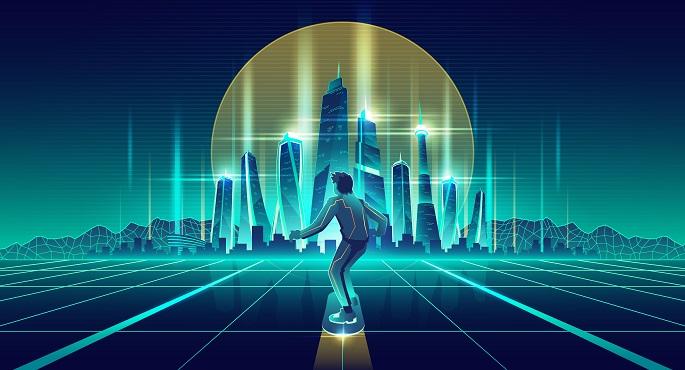Employers and Universities: Work with us?

These are the most important skills you'll need in the future
Technology is radically changing the way we live and work. Robotics, virtual reality and artificial intelligence are transforming careers. This era is being called the fourth industrial revolution.
In the future, many jobs will be done by machines, but on the other hand, there will be plenty more jobs available (for us humans!). Many of them will be creative and perfect for problem-solvers.
So what are the necessary skills for the future? In this post we look at some of the abilities and qualities that you’ll need to future proof yourself for the next revolution.
1. Emotional intelligence
Emotional intelligence (sometimes called EQ) refers to your ability to identify and manage your own emotions, as well as the emotions of others. Being emotionally intelligent means you can harness your emotions and use them to solve problems. You have empathy and are able to connect with and work with lots of different kinds of people.
This quality will be increasingly important in the workplaces of the future. Our emotions can’t be replicated by robots... not yet anyway! A high EQ is crucial for any role where you have to interact with others, from health and social care jobs to recruitment and HR.
2. Adaptability
One of the most important skills for the future is adaptability. Being adaptable means that you’re able to deal well with change. Employers love staff who can handle lots of different, evolving situations. Adaptable people are open to new ideas, they can cope when things don’t go to plan, and are flexible enough to respond to any problems that come up. They are resourceful and often use their initiative.
In coming years we’ll have to get used to changing roles, skill sets, expectations and workplaces. If you teach yourself to see change as an opportunity rather than a difficulty, you’ll be future proofed.
3. Creativity
It’s often thought that you can’t learn creativity skills, or that you need to be arty to have them – but that’s not true! Creativity skills, also known as creative thinking skills, essentially means being able to come up with something new. It means looking at things in a new way. These abilities are really important for the workplace — no matter what job you end up doing.
Having a creative mindset is something that can’t quite be copied by artificial intelligence. Future proof yourself by developing your imagination and ability to think outside the box.
4. Critical thinking
Another one of the necessary skills for the future is critical thinking, sometimes referred to as analytical thinking. Critical thinking is the ability to carefully and deliberately analyse information in order to understand things better.
Critical thinking also means that you have to gather information from lots of different sources and people, so it can help improve your teamwork skills and research abilities. It can also help you come up with new ideas, making you a better problem-solver. In the future we’ll need to think more critically than ever before: fake news and big data are just a couple of the reasons why.
5. Technology skills
Unsurprisingly, the fourth industrial revolution will require us to have better technology skills than ever. Even if you’re not working in cryptocurrency, artificial intelligence or another tech-heavy industry, you’ll still need a good level of digital literacy. Data is the most important area: pretty much every job will require some level of data analysis.
The Internet Of Things, machine learning, programming and data visualisation are just a few of the areas that will help you stand out in the future.
6. Judgement and decision making
Coming to a well-reasoned decision will be even more important in the future. Machines can process information and help give us insights, but it’ll be us humans who will have to make decisions based on that information.
Decision-making also encompasses other skills, such as problem-solving, the ability to plan ahead and organise, and taking initiative.
